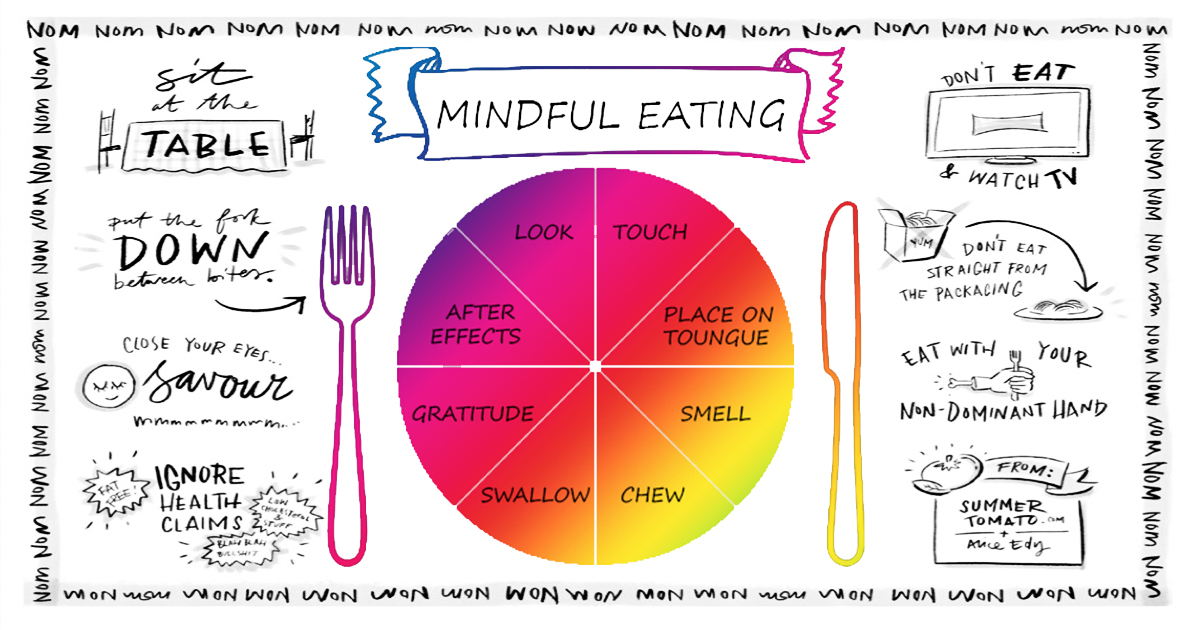
Mindful Nourishment: Cultivating Healthy Eating Habits
In the hustle and bustle of modern life, mindful eating offers a transformative approach to nourishing our bodies. This practice encourages a conscious and present connection with the food we consume, fostering a deeper understanding of our dietary choices and their impact on overall well-being. Let’s delve into the principles of mindful eating and how it can positively influence our relationship with food.
The Essence of Mindful Eating: Presence at the Plate
At its core, mindful eating is about being fully present during meals. It involves paying attention to the sensory experience of eating, including the flavors, textures, and aromas of food. By being mindful, individuals cultivate a heightened awareness of their eating habits, fostering a more intentional and satisfying relationship with food.
Savoring Each Bite: A Celebration of Flavor
Mindful eating invites individuals to savor each bite, acknowledging and appreciating the flavors that unfold with every mouthful. Taking the time to chew slowly and deliberately not only enhances the enjoyment of the meal but also aids digestion. This intentional pace allows the body to signal satiety, preventing overeating.
Listening to Hunger and Fullness Cues: Honoring Body Signals
Mindful eating encourages tuning in to the body’s hunger and fullness cues. Rather than adhering to external cues or rigid dietary rules, individuals learn to recognize their body’s signals for nourishment. This awareness promotes a healthier and more intuitive approach to eating, fostering a balanced and sustainable relationship with food.
Emotional Connection: Understanding Food and Feelings
Mindful eating extends beyond the physical act of nourishment to encompass the emotional aspect of eating. It encourages individuals to explore their emotional connection with food, recognizing when cravings may be tied to emotions rather than hunger. This awareness empowers individuals to make choices that align with their emotional well-being.
Mindful Meal Planning: Cultivating Intentionality
Incorporating mindfulness into meal planning involves thoughtful consideration of the nutritional value and variety of foods. It means choosing ingredients that align with personal health goals and preferences. Mindful meal planning transforms the act of eating into a purposeful and enjoyable experience, fostering a positive relationship with nutrition.
Gratitude for the Source: Appreciating Food Origins
Practicing mindfulness in eating includes an appreciation for the sources of our food. This involves considering the journey of ingredients from farm to plate. Acknowledging the efforts of farmers, producers, and all those involved in bringing food to the table enhances gratitude and fosters a deeper connection with the broader food system.
Cultivating Mindful Habits: Breaking Free from Distractions
In a world filled with distractions, cultivating mindful eating habits requires intentional effort. This involves stepping away from screens, setting aside electronic devices, and creating a dedicated space for meals. Breaking free from distractions allows individuals to fully engage with the act of eating, promoting a more mindful and fulfilling experience.
Mindful Hydration: Sipping with Awareness
Mindful eating extends to mindful hydration, emphasizing the importance of sipping beverages with intention. Whether it’s water, herbal tea, or other hydrating choices, being present with each sip enhances the overall experience. This mindful approach supports optimal hydration and encourages a conscious relationship with beverages.
Portion Awareness: Finding Balance in Quantity
Mindful eating includes an awareness of portion sizes, emphasizing the importance of balance. Rather than restrictive dieting, it encourages individuals to find a harmonious balance in the quantities they consume. This approach fosters a healthy relationship with food, allowing for enjoyment without guilt or overindulgence.
To explore the principles of mindful eating, visit Mindful Eating. Cultivate a healthier and more intentional relationship with food, embracing the transformative power of mindful nourishment for overall well-being.
